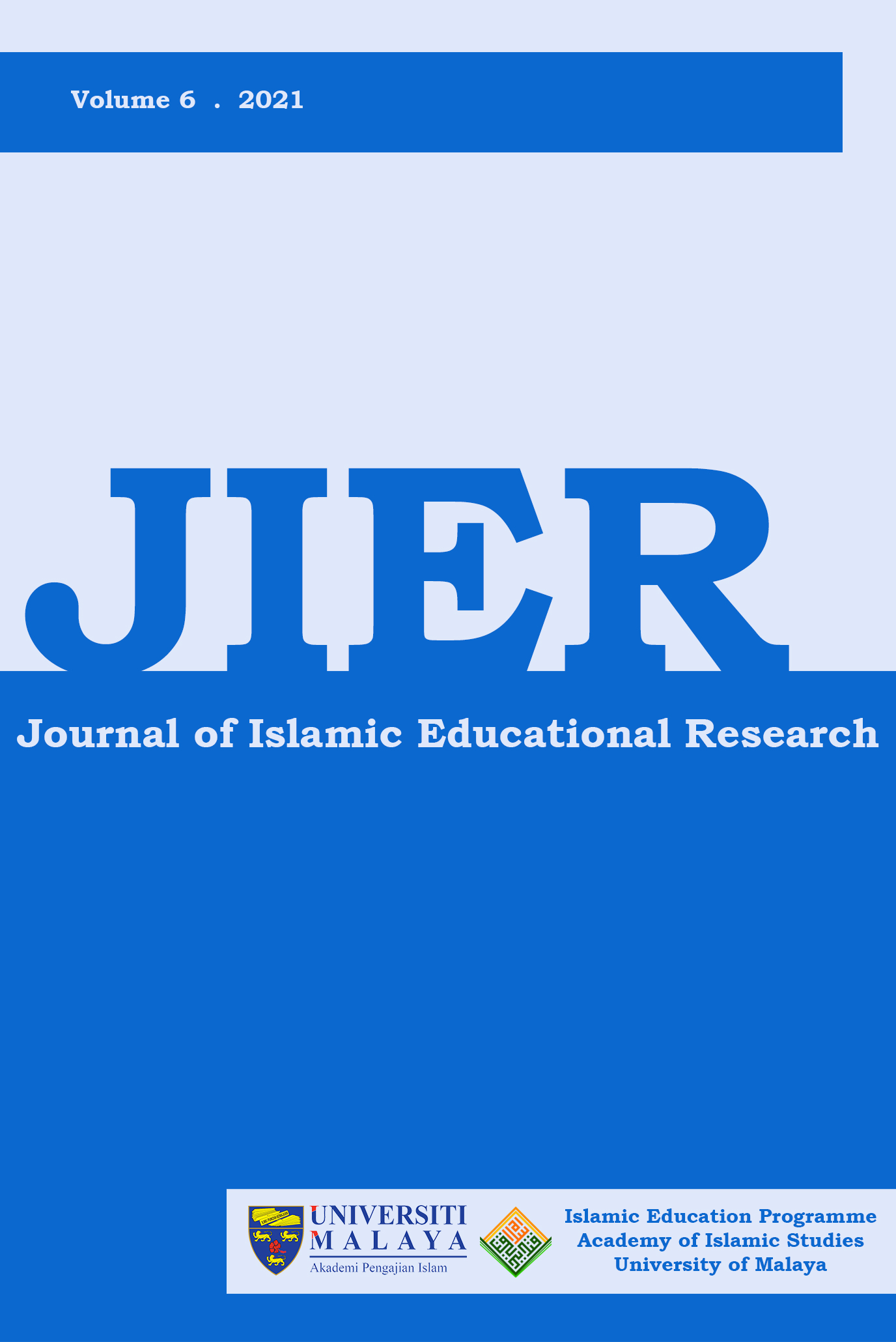MENEROKA ASAS PEMIKIRAN HUBUNGAN GURU-MURID DALAM INSTITUSI PENDIDIKAN ISLAM ZAMAN ABBASIYAH
EXPLORING THE FOUNDATION OF THE TEACHER-STUDENT RELATIONSHIP IN ISLAMIC EDUCATIONAL INSTITUTIONS OF THE ABBASID ERA
DOI:
https://doi.org/10.22452/jier.vol6no2021.3Keywords:
Teacher-Student Relationship, Islamic Educational Institutions, Research Center, Mosque, MadrasahAbstract
Islamic educational institutions during the Abbasiyah era possess a number of uniqueness. This has been shown through the contribution of those earlier islamic scholars, resulting in critical meaning in today’s education. The practice that occurs in Islamic educational institutions are derived from the teacher-student relationship, especially during the 8th-12th century. Hence, this study aims to examine the basis of teacher-student relationship thinking that occurred in Islamic educational institutions of the Abbasiyah era. Among the most prominent institutions studied are the research centers, mosques, and schools. The data obtained generally through an exploration of primary and secondary historical sources. In addition, data analysis employed interpretive and descriptive methods. Findings showed that the the fundamental thoughts of teacher-student relationship existing in the most important Islamic educational institutions reveal four important aspects namely spiritual values, manner teaching (adab), wisdom, and scientific spirit. Thus, these elements need to be re-emphasized in the teacher-student relationship through current educational institutions so that the authority of knowledge can be situated in its proper place.
Downloads
Downloads
Published
How to Cite
Issue
Section
License
The published manuscript shall be a copyright of the Islamic Education Programme, Academy of Islamic Studies, University of Malaya, Kuala Lumpur, Malaysia. The published manuscript would not represent the stand or opinion of the Advisory Board, Editorial Board, Co-Editorial Board and the Management Team of Journal of Islamic Educational Research (JIER), or the Islamic Education Programme, Academy of Islamic Studies, University of Malaya.
Note: This is an open access journal which means that all content is freely available without charge to the user or his/her institution. Users are allowed to read, download, copy, distribute, print, search, or link to the full texts of the articles in this journal without asking prior permission from the publisher or the author. This is in accordance with the BOAI definition of open access.






